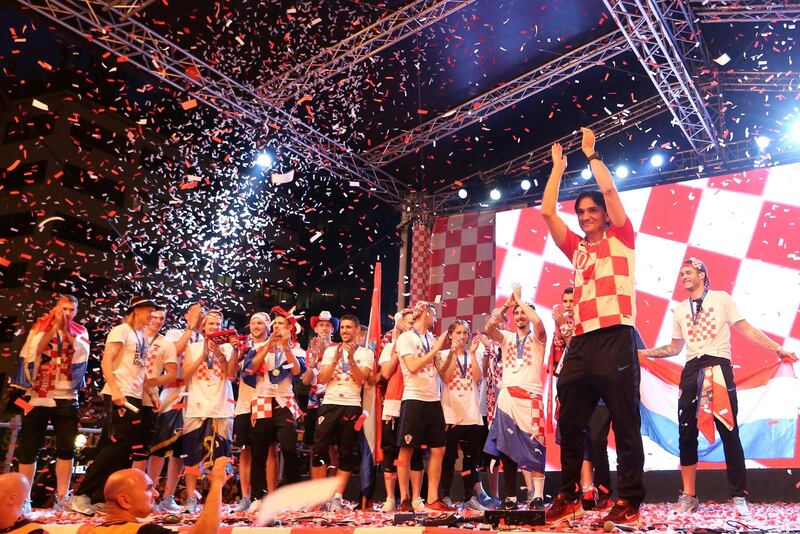Garden City, and the UAE, represented
Al Ain lighting up the world stage, eh?
In Russia, and in the latter stages to boot, the UAE champions were represented, both by their recent past and present. OK, Marcus Berg did not exactly set the competition on fire: up until the quarter-finals, the Sweden striker had more attempts on goal (13) without scoring than any player in the entire tournament. He had two more against England, but Jordan Pickford was equal to both.
Clearly, the 2017/18 Arabian Gulf League’s top scorer left his shooting boots in the Garden City. But at least he was there, in the last eight of a World Cup, a vital cog in Sweden’s military-precision machine.
And what about Zlatko Dalic? From three years at Al Ain (2014-17) to the World Cup final with Croatia, with no other employment in between.
Remarkable.
Zlatko Dalic's most recent finals:
— John McAuley (@_JMcAuley) July 15, 2018
2014 - President's Cup
2016 - President's Cup
2016 - Asian Champions League
2018 - #WorldCup
Decent trajectory. #CRO #WorldCupFinal pic.twitter.com/Uj4DsNdgnn
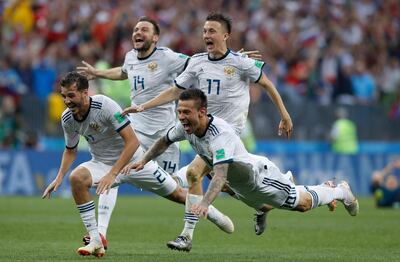
Xi-Xi, deadline demon
Undeniably, filing copy on the final whistle is a skill (which I’ve probably yet to master). Footballers rarely help. In most instances, there are 11 – at least – intent on ensuring you’ll have to press the delete button and start again.
Rarely is the outcome of a match decided early enough to provide sufficient time to contribute your life’s work. Take Cristiano Ronaldo rifling a free-kick into Spain’s top corner, or Toni Kroos doing likewise to Sweden.
So imagine the delight when, after Russia had sent Spain packing (Spain!) on penalties in the last 16 in Moscow, my word document morphed into Chinese. Literally; that’s not a critique of my writing. Mild panic ensued.
Informed of Armageddon, my editor hastily made provisions. Namely, find a report he can rely upon.
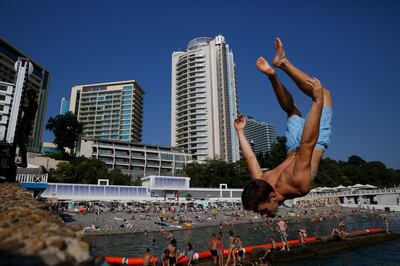
So long Sochi, you were great
Ah, Sochi. The Russian Riviera, apparently.
Where many migrate to in the summer months, a celebration along the Black Sea that the long winter has thawed. I’d seen pictures before I set off from Saint Petersburg for Russia against Croatia. It looked beautiful, idyllic even.
Everyone there, or the other journalists who’d travelled south earlier in the tournament, sported a nice tan. On my first day, it poured, and it poured and it poured.
In the media centre, where we waited for Russia manager Stanislav Cherchesov to give his pre-match briefing, our voices and frantic battering of keyboards were drowned out by the rain pelting the metal roof. Outside, people scattered like bugs from the light. It continued for the most part, with the sun then coming out on match day, just as I was ready to leave.
Sod’s law.
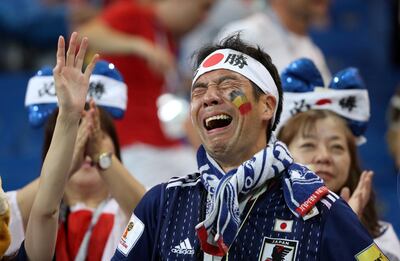
Japanese despair as Belgium break hearts
Inclement weather wasn’t restricted to Sochi. In Saint Petersburg, on the night before Sweden (and Berg!) took on Switzerland, a sudden thunderstorm meant ducking into a nearby restaurant to see Japan’s last-16 encounter with Belgium.
There, a small but vocal group of Japanese supporters watched on television, the majority dressed in their team’s jersey. All except one, decked out in full kimono. After a stirring rendition of Japan’s national anthem, they breathed every moment.
From Genki Haraguchi’s opener to Takashi Inui doubling their advantage; from Jan Vertonghen halving the deficit to Marouanne Fellaini cancelling it out completely, to Nacer Chadli’s injury-time winner. Belgium had done it. Japan were out.
Their supporters could barely believe it. Watching them for 90 minutes reminded of football’s great ability to wring every emotion. Yet, to their immense credit, they sang through the despair.
___________
Read more:
[ Hugo Lloris predicts 'special season' for Tottenham after successful World Cup ]
Olivier Giroud savours trophy glory, says criticism 'motivates me to get better'
Transfer targets: Five players on club radars after starring at the World Cup
[ Talking points: Europe reigns supreme as France show teamwork is key ]
___________
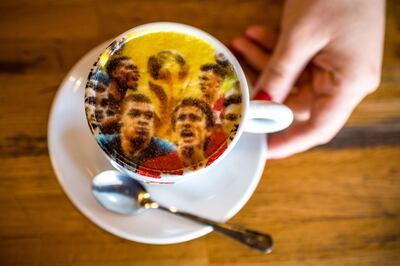
Fuelled by beans
Not sure if it’s of much interest, but here you go anyway: centuries after it was first used in Africa, the Middle East, South America or Starbucks – or wherever it originated – I have discovered coffee.
For years resolutely a tea loyalist, I was forever fighting against friends who recommended – and robustly relied upon – coffee. It carries you through the day, they declared. Their work depended on it, they claimed.
Still, I was always highly skeptical.
However, my World Cup’s been positively powered by it. Undeniably, it shakes off the morning fog, fans the fumes for those living off of them.
Judging by the potency of an Americano here – admittedly, it’s a small sample size – maybe that’s what the tireless Russian national team were guzzling pre-match.
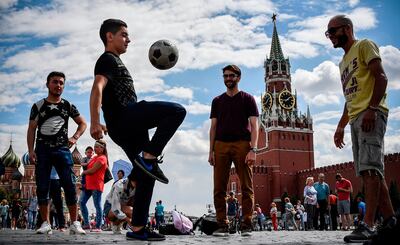
Red-letter day in Red Square
Picture the scene: your team’s trailing 1-0, largely against the run of play. And at the World Cup, where legends are made and memories that last a life-time forged.
Suddenly, the ball gets rolled to you, yards from goal, a clear sight at an equaliser and the opportunity to spark an unforgettable run to victory. But you screw your shot hopelessly wide. Dreams are dashed, teammates look on in disappointment, spectators’ stares pierce your soul.
So that’s what happened to me, at a Fifa-organised media match in Red Square.
For what it’s worth, my team – made up of Nigerians, Cameroonians, Algerians, Brazilians, an Englishman and a Scot – recovered, winning 3-2. I contributed little to the comeback.
The Africans broke into song and danced in delight. But football, in Moscow’s centre, beneath the high walls of the Kremlin and with St Basil’s Cathedral peering down, was a joy.
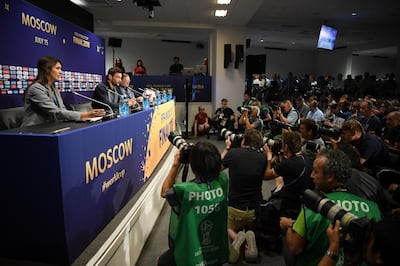
Tired confusion reigns
Covering a World Cup embroiders a sports journalist with a badge of honour.
Days pass, we unravel. Most can't remember instances in matches (minor ones, you know, such as goals or results). Ones in which they actually attended. Ask any journalist which game they just took in, and it's typically met with a dead-behind-the-eyes stare and a blank expression. An apology, usually a barely audible whimper, follows.
But we’re a hardy bunch. We compare war wounds like veterans. “I got hit by a stray sleepless night on the train to Rostov”; “shrapnel, from Croatia-Denmark going to penalties”; “we were besieged in Nizhny for Switzerland-Costa Rica, no food or water for days”.
However, you're covering a World Cup. The World Cup. It's a privilege, painful for the most part, but an absolute privilege.
A fantastic surprise interruption at the #WorldCup press conference . . . pic.twitter.com/fKGWek8nTp
— Chuck Culpepper (@ChuckCulpepper1) July 15, 2018
